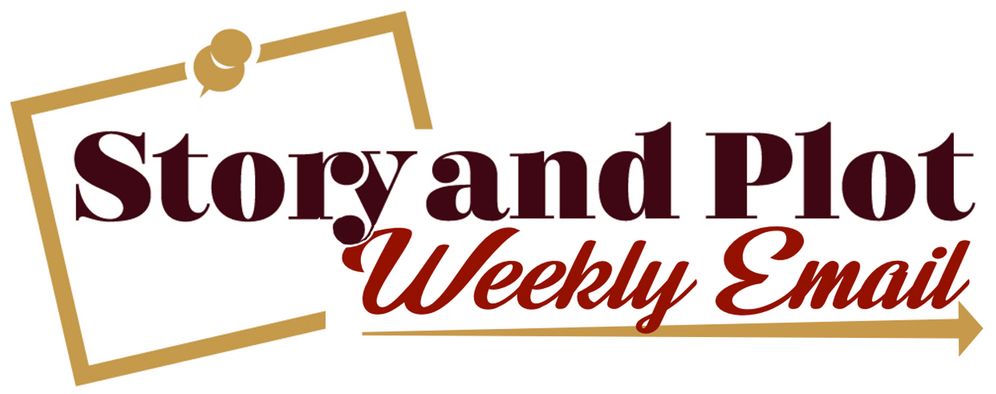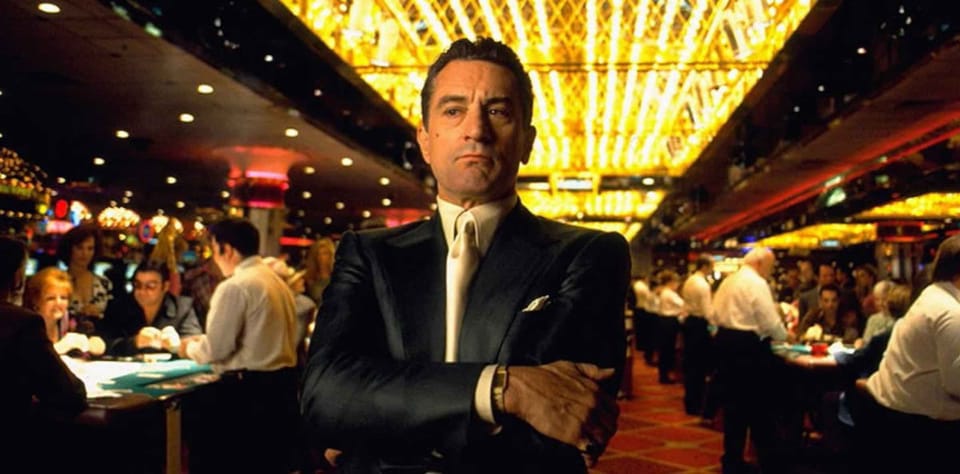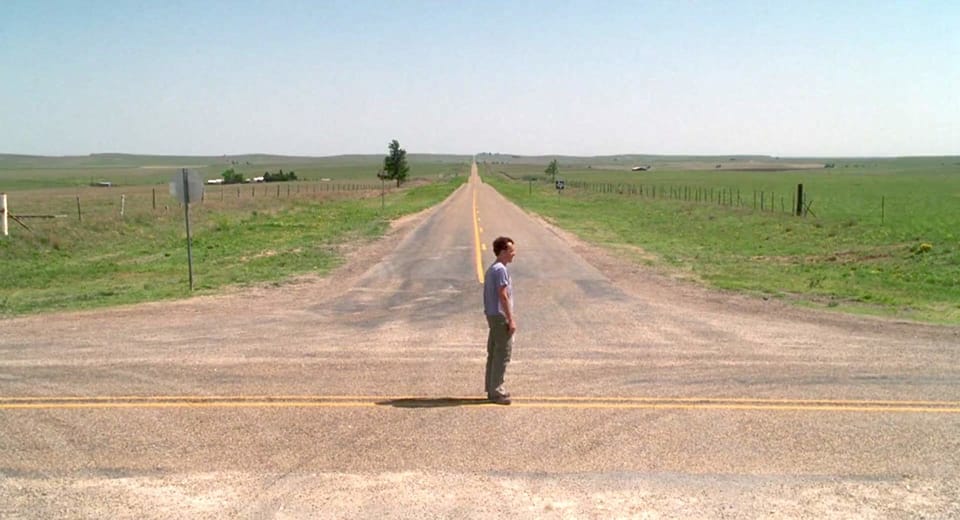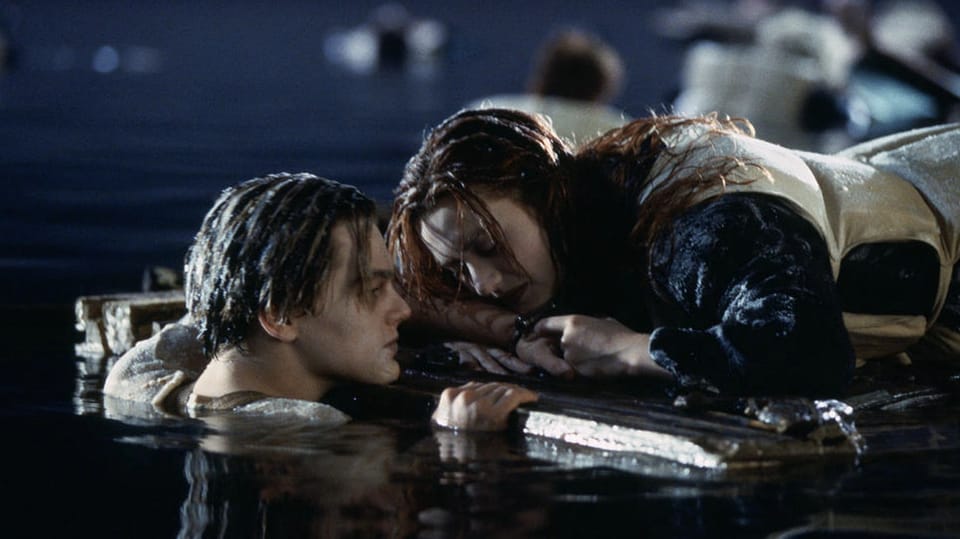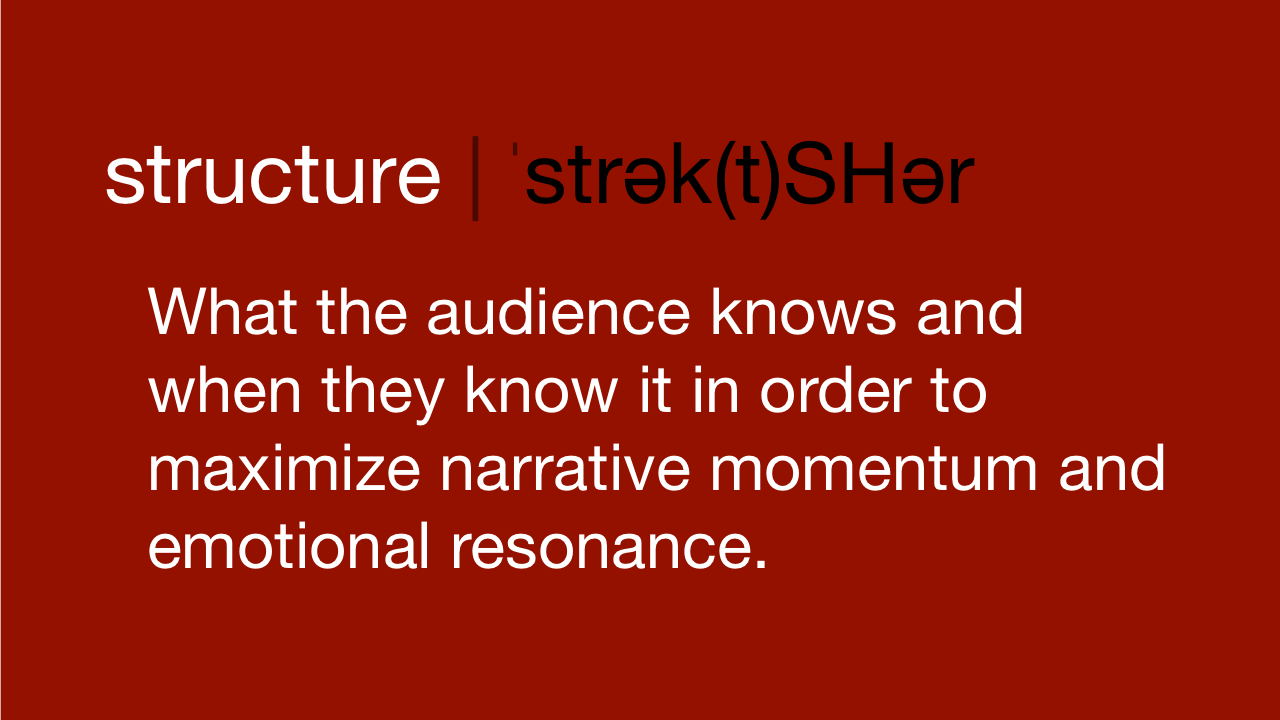Why Story Matters: Act 1 and Act 3
I am working with a fellow screenwriter, and we are struggling with a third act. We both LOVE the ending. The ending is unique, making me fall in love with the project. Having the ending before you have much else is not all that uncommon, but it’s a unique challenge.

The Story and Plot Weekly Email is published every Tuesday morning. Don't miss another one.
I am working with a fellow screenwriter, and we are struggling with a third act. We both LOVE the ending. The ending is unique, making me fall in love with the project. Having the ending before you have much else is not all that uncommon, but it’s a unique challenge. That said, some of the lessons to it are universal no matter where you are with the structure.
Like so many of my screenwriting discussions, this is an example of why story matters. Which is why Act 2 matters. And wht Act 1 and Act 3 matter.
Story is character, and character is story. They are inseparable. So much so that I define story in my classes as, “The transformational journey of a human being.”
This definition puts story in its proper place in both its importance to us as storytellers, and in how we structure out the screenplay.
In Billy Wilder’s Screenwriting Tips, as told to Cameron Crowe, there is this entry:
6. If you have a problem with the third act, the real problem is in the first act.
This is sometimes misunderstood, as some readers may respond with, “No. Sometimes Act 3s are just terrible.”
Which is true. _But the reason they are terrible_ is that they are not a proper transformation from Act 1.
Wilder was assuming some competence here. He assumed the writer had written or outlined a professional third act, but it just wasn’t working as intended. It wasn’t hitting the audience (or reader) the way the writer wanted.
It wasn’t as moving. It didn’t cut as deeply. It wasn’t as hopeful. Whatever the case may be.
Perhaps it wasn’t even coming at all! And the writer is staring at the blank page having no idea how to end it.
Then go back to the first act. You will find the answers there, or you will create them.
Is the first act setting up the transformation that the protagonists or those around them MUST undergo?
And is that transformation compelling enough? Does it MOVE the audience? Is the transformation necessary to conclude the story?
There is some old advice to the dramatist attributed to different sources. It goes something like this:
In the first act, get your character up a tree; in the second act, throw stones at him; in the third, get him down gracefully.
This is all true. But it’s limited.
What we really want is:
Put a character up a tree. Throw stones at them. The stones change the character. And because of this change, the character figures out how to get down.
This is why Act 2 matters. Without Act 2, the character doesn’t change. If they don’t change, they’re unable to answer the dramatic question to the audience’s satisfaction.
But the change must mean something. It’s an emotional change, it’s a spiritual change. A magic potion isn’t enough.
Does the transformation from Act 1 to Act 3 move us? Did we set it up properly? Even as it should surprise and delight is, is Act 3 such a natural response to Act 1 that the audience thinks to itself, “Of course. It had to end that way.”
Back to the screenplay we are struggling with:
The ending has Character A kill Character B in a haunting, disturbing way. It’s why I love the piece.
But our challenge now is how do we maximize the emotional effect of that slaying? How do we make it even MORE haunting? How do we emphasize the tragedy/triumph beyond just the cleverness of it?
The end of The Godfather doesn’t work as well without seeing Michael and Kay at the wedding, innocent and naive.
The end of Raiders of the Lost Ark doesn’t work as well without Indy calling religion “mumbo jumbo” in the first act, and being desperate to look inside the ark himself.
The end of Titanic doesn’t work as well without seeing Rose as both a grandmother and a young woman in a quiet prison. We also need to see Jack’s carefree, only-responsible-to-himself lifestyle.
The end of Ratatouille doesn’t work unless we see Remi’s life before the kitchen and know how his father feels about humans.
I can go on and on, of course.
The third act is an answer to the first act. They should fit hand in glove.
For our story, besides the act of murder itself, how Character A feels about Character B is what will make or break the effectiveness of Act 3.
If he already hates Character B, then the transformation is just about the killing itself. That’s not nothing, but the story isn’t about how someone learns to kill (even though many great movies are.)
The farther away Character A is from even thinking about murdering Character B, the more potentially haunting that ending can be. While every story and every character is different, in general, and as long as it remains emotionally truthful, the bigger the transformation the better.
And that is set up in Act 1.
That is where you plant the seeds. It’s not just clever setup/payoff (though, let’s face it, that’s always fun!) It’s creating an Act 1 that demands a certain conclusion. It demands a certain transformation to end in a satisfying way.
Act 3 is an inevitable but seemingly impossible response to Act 1, made possible by the transformation in Act 2.
So if you’re struggling with Act 3, it’s because you’re either ignoring a good Act 1, or ignoring Act 1 because it’s not demanding an inevitable, seemingly impossible Act 3.
Perhaps you didn’t create a character far enough from where they will end up. Maybe the relationships aren’t there, or we can visualize the ending too easily.
But whatever it is, if your Act 1 isn’t working, your Act 3 never will either.
Want to receive these emails every week?
 Tom Vaughan
Tom VaughanWhen you're ready, these are ways I can help you:
WORK WITH ME 1:1
1-on-1 Coaching | Screenplay Consultation
TAKE A COURSE
Mastering Structure | Idea To Outline
